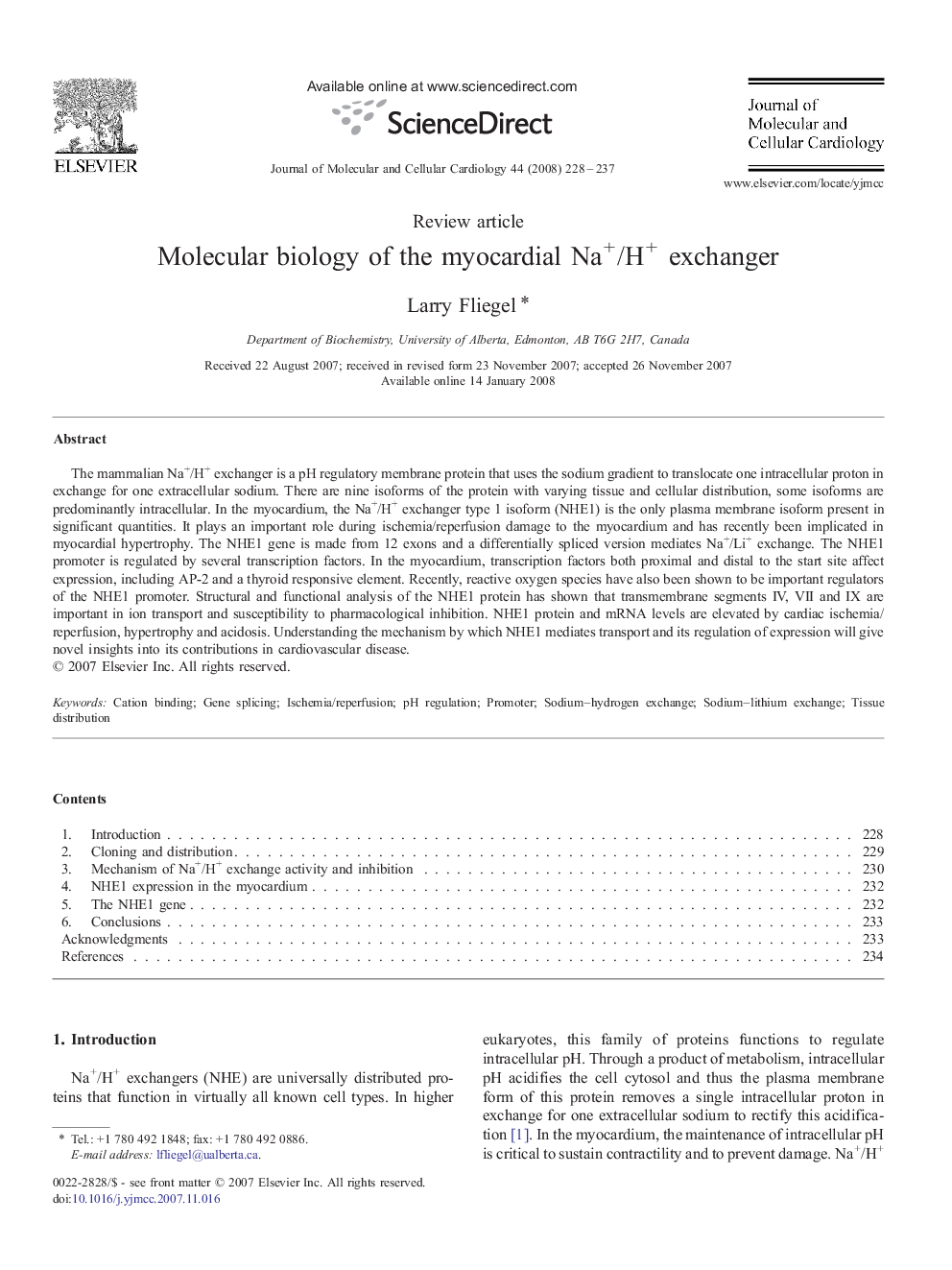| Article ID | Journal | Published Year | Pages | File Type |
|---|---|---|---|---|
| 2191445 | Journal of Molecular and Cellular Cardiology | 2008 | 10 Pages |
The mammalian Na+/H+ exchanger is a pH regulatory membrane protein that uses the sodium gradient to translocate one intracellular proton in exchange for one extracellular sodium. There are nine isoforms of the protein with varying tissue and cellular distribution, some isoforms are predominantly intracellular. In the myocardium, the Na+/H+ exchanger type 1 isoform (NHE1) is the only plasma membrane isoform present in significant quantities. It plays an important role during ischemia/reperfusion damage to the myocardium and has recently been implicated in myocardial hypertrophy. The NHE1 gene is made from 12 exons and a differentially spliced version mediates Na+/Li+ exchange. The NHE1 promoter is regulated by several transcription factors. In the myocardium, transcription factors both proximal and distal to the start site affect expression, including AP-2 and a thyroid responsive element. Recently, reactive oxygen species have also been shown to be important regulators of the NHE1 promoter. Structural and functional analysis of the NHE1 protein has shown that transmembrane segments IV, VII and IX are important in ion transport and susceptibility to pharmacological inhibition. NHE1 protein and mRNA levels are elevated by cardiac ischemia/reperfusion, hypertrophy and acidosis. Understanding the mechanism by which NHE1 mediates transport and its regulation of expression will give novel insights into its contributions in cardiovascular disease.
